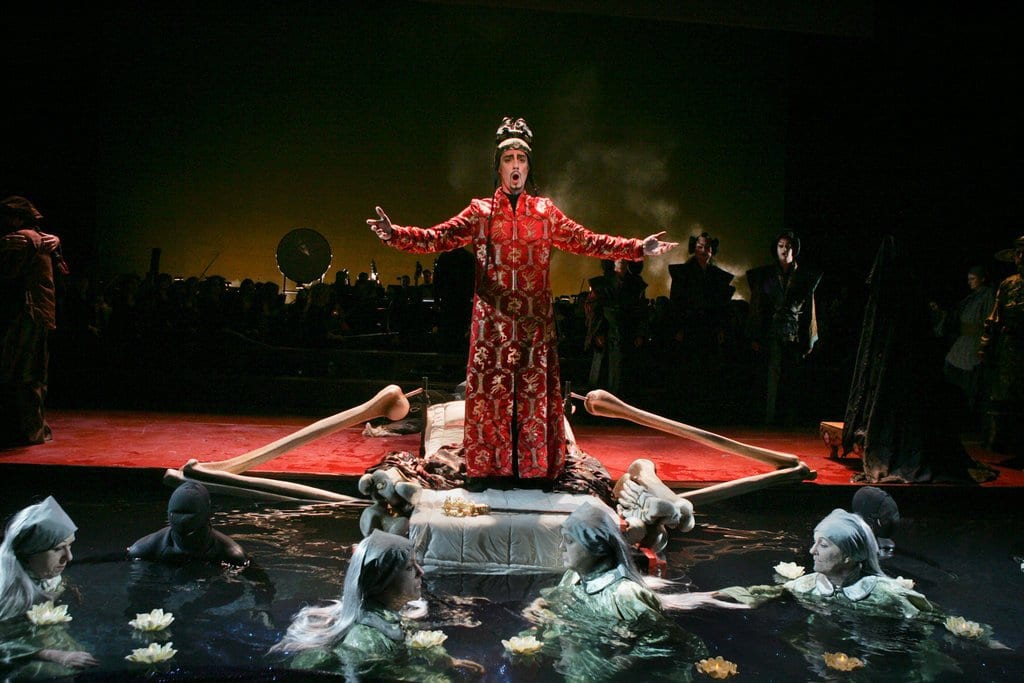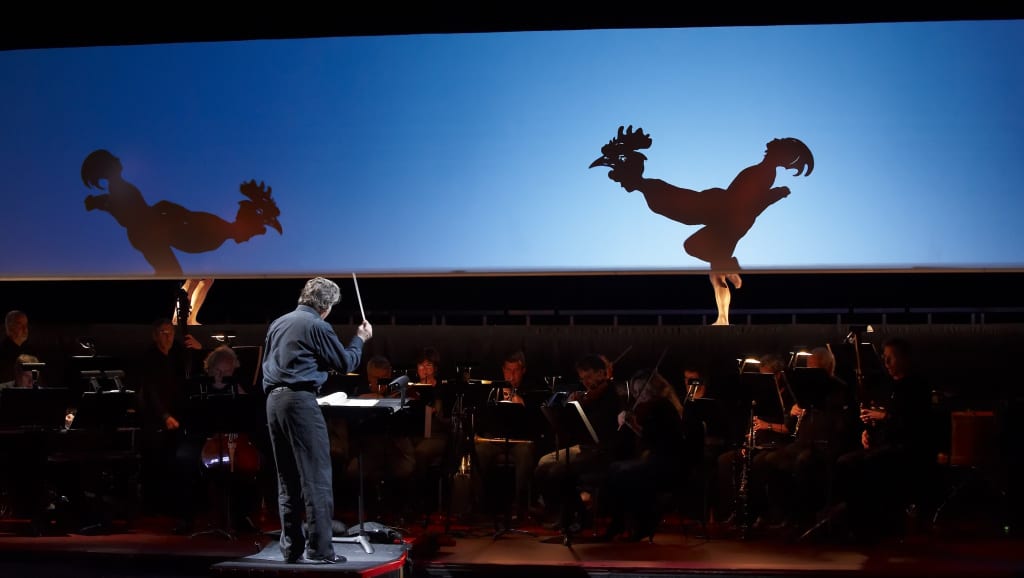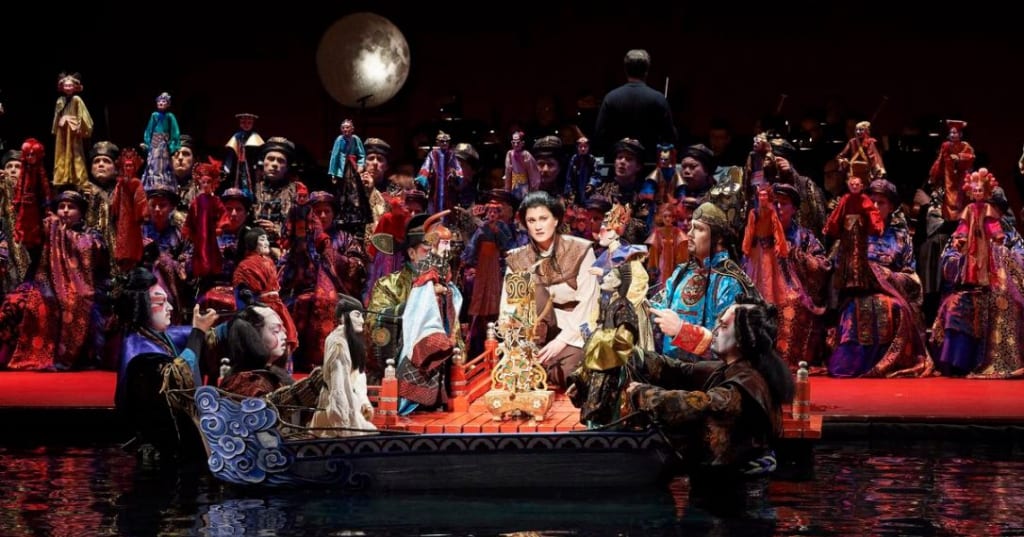It was with something akin to despair that I realized I was coming down with the flu two days before opening night for the COC’s revival of the famed production of Robert Lepage’s The Nightingale and Other Short Fables. I had been in a state of heightened anticipation, knowing the magic that Lepage works in a theatre. Luckily, I was able to catch the “opera” at a later date and can affirm (as if it were needed), that this production is magical in every sense of the word.
Lepage acknowledges his fascination with myth in the opening lines of his director’s note, with a reference to Plato’s “Allegory of the Cave,” that seminal text which, among other things, illuminates our early fascination with a theatre of life, and its ensuing mythology. Mythos, for Homer, was both artifice and essential reality; for Lepage, myth becomes the artifice by which to reveal and enact the more ritual aspects of theatre. For example, in this production, the orchestra pit is filled with water on which a puppet theatre unfolds. It could all be just a neat trick, unless you lift your eyes for a moment to discover that subtle lighting, playing off the water, illuminates the entire audience space — we float in a gentle ocean of luminescence that brings back a sense of a primordial beginning, a dreamtime.

The title piece of the evening is based on “Nattergalen” by Hans Christian Andersen, the fairy tale which tells a story of mankind’s fickle fascination with the natural world. In it, a mythical Emperor of China falls in love with the song of a nightingale, only to forsake its beauty for a sophisticated, bejewelled replica. As he approaches death, however, the toy has no power to restore or heal the Emperor, and the kind nightingale returns to sing him back into the realm of the living. The early allegory on man’s colossal hubris in regards to the environment is very present in this myth… if only we would listen.
The Nightingale and Other Short Fables is a collage of pieces composed by Igor Stravinsky where each tale offers some curious exposition of human nature through an animal. “The Fox,” tells the story of barnyard animals, their characters offering pithy glimpses at our little vices — arrogance, vanity, greed. But these seemingly petty concerns become life and death struggles when seen in a different light. A master of theatrical irony, Lepage stages the fable through shadow puppetry performances that take place on and behind a screen that is slightly lifted to partially reveal the bodies of the acrobats performing the puppetry. One is transported back to childhood, to the puppet theater in a friend’s house, or fair, where the strings are visible, but somehow, they enhance the drama of what takes place. It is this willing suspension of disbelief, while rooted in the real, that makes magic.

Also stunning are the performances. It is hard to think that Jane Archibald can surpass herself, but that is just what she does. Archibald’s nightingale is so exquisite that when she begins singing you weep (I mean that quite literally, and I was not the only one trying to brush off the tears streaming down my face). Likewise, Owen McCausland as the simple but wise fisherman brought a subtle strength and gentleness to his phrasing that often gave the impression that he was a Zen master in a tenor’s costume. Lindsay Ammann as Death was eerily powerful, her voice seeming to fill the auditorium with a chilling awe.
The COC women’s chorus, in “Four Russian Peasant Songs,” captured that pointed, gossipy sense that is so characteristic of the way Stravinsky brought folk idioms into his music. And the COC orchestra rose to the occasion under their resident conductor, Johannes Debus.
This is not a production to be missed. Storm the gates, rush the rush tickets, beg if you have to… but see it.

